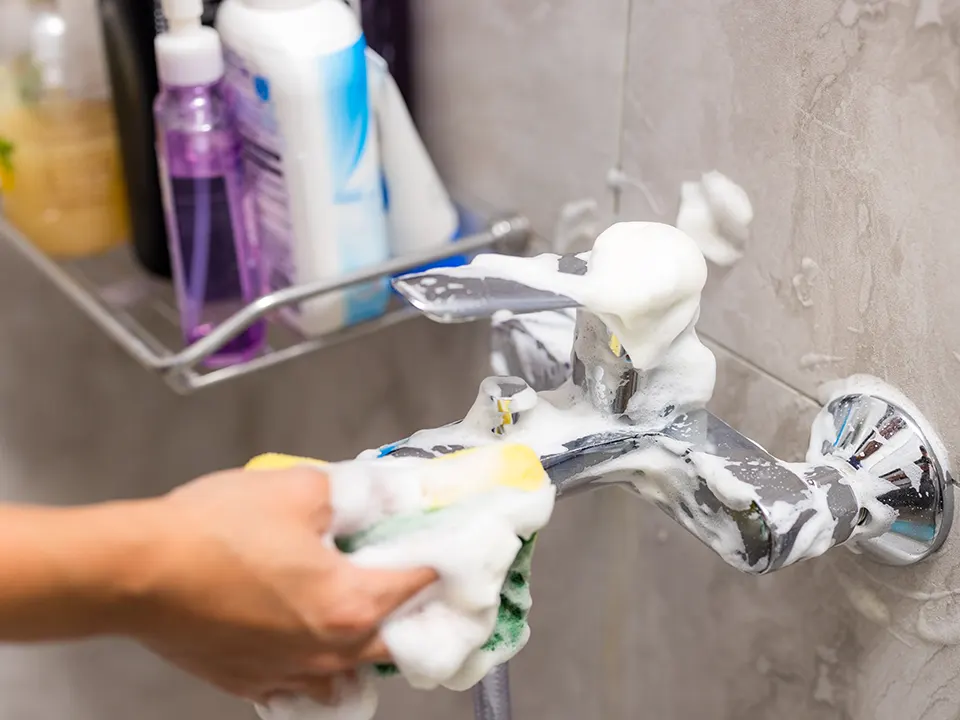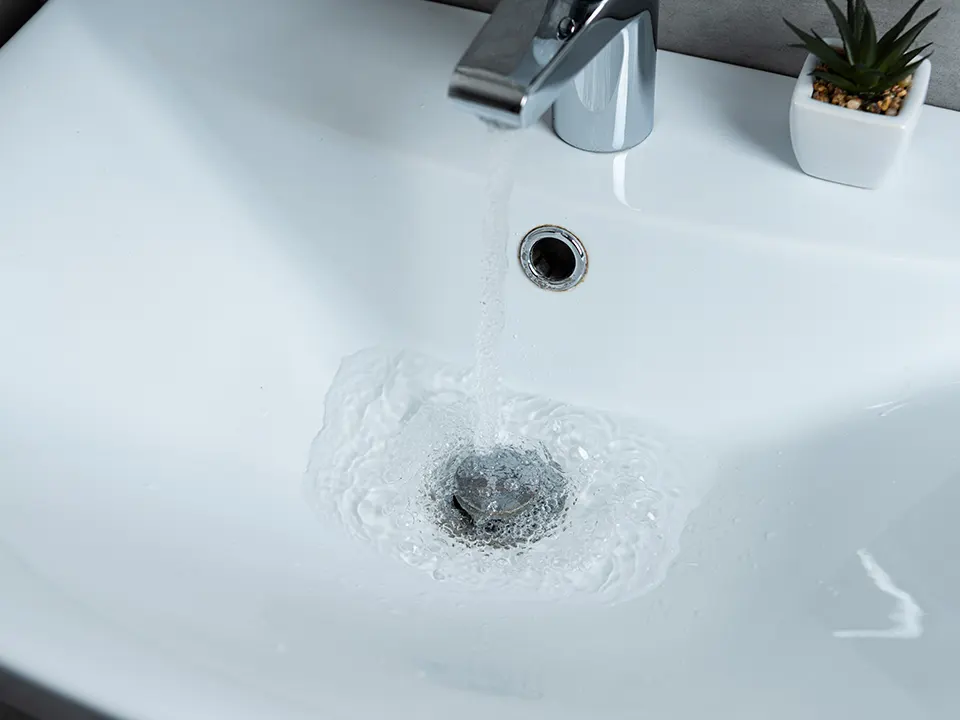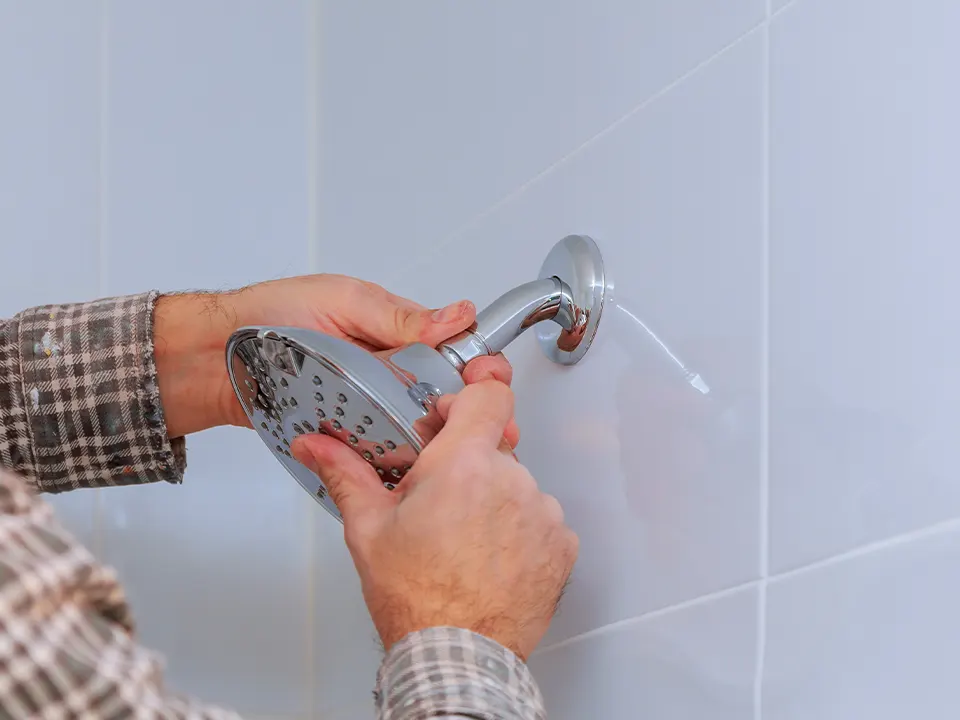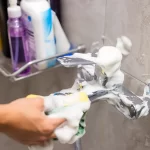
The Best Methods to Remove Hard Water Stains from Your Faucets and Fixtures
February 11, 2025A clogged drain is one of those annoyances we would all rather avoid. You’ve probably stood over a slow-draining sink or tub, debating whether to grab a chemical drain cleaner for a quick fix. These products promise to dissolve grease, hair, and soap scum in minutes, but are they really the best solution? Spoiler alert: not always. While they might work in the short term, they can pose risks to your health, your plumbing, and even the environment. So before you reach for that bottle, let’s see what’s really going on and whether there are better options.
What are Chemical Drain Cleaners?
Chemical Drain cleaners are products that are specially formulated to unclog and clean drains by dissolving various types of materials such as hair, grease, paper, or other debris. They rely on the reaction between chemicals and debris to break down those materials that are clogging your drains.
How Do Chemical Drain Cleaners Work?
Depending on the product, they work in slightly different ways:
- Oxidizing Cleaners: These cleaners contain bleach, peroxides or nitrates that release oxygen when poured into the drain. The oxidization breaks down debris by killing the bacteria, making them an effective type of drain cleaner.
- Acidic Cleaners: These cleaners contain sulfuric, muriatic, and hydrochloric acid, which reacts with the materials to produce heat and gas that work to dissolve the clog.
- Enzymatic Cleaners: Instead of relying on harsh chemicals, they use bacteria and enzymes to slowly digest clogs over time. However, these products take longer than chemical drain cleaners.
It’s easy to see why these cleaners are popular. The promise of quick results is tempting, but the aggressive reactions they cause can lead to some unintended consequences.
Potential Dangers of Using Chemical Drain Cleaners
Chemical drain cleaners can do more harm than good in many cases. Here’s what you need to watch out for:
Health Risks
- Fumes: The chemicals release strong fumes that can irritate your nose, throat, and lungs.
- Skin and Eye Contact: If anything gets on your skin, it will result in burns, and if it gets into your eye, it could result in chemical burns.
- Poisoning: If you have kids or pets, keeping these products out of reach is critical. Even a small amount can be incredibly harmful if ingested.
Damage to Your Pipes
Chemical drain cleaners don’t just attack clogs—they can also damage your plumbing:
- Pipe Corrosion: The heat generated during the chemical reaction can warp PVC pipes and corrode metal ones. Over time, this could lead to leaks or costly replacements.
- Septic System Problems: Got a septic system? Chemical cleaners can kill the bacteria your septic tank relies on to break down waste, throwing the whole system out of balance.
Environmental Impact
What goes down the drain doesn’t just disappear:
- Water Pollution: These chemicals can end up in rivers, lakes, and groundwater, harming aquatic life and ecosystems.
- Air Pollution: The fumes you breathe in can also contribute to poor air quality indoors and outdoors.
When Is It Safe to Use a Drain Cleaner?
So, are chemical drain cleaners ever safe to use? Sometimes, but only in very certain situations.
- Stick to Minor Clogs: Chemical cleaners are best for small blockages, like a bit of grease in the kitchen sink or soap scum in the shower. Anything more serious? Call a plumber.
- Use with Caution: Always wear gloves and safety goggles, ventilate the area, and read the instructions carefully. Oh, and never mix different types of cleaners. Combining chemicals can create dangerous fumes or even explosions.
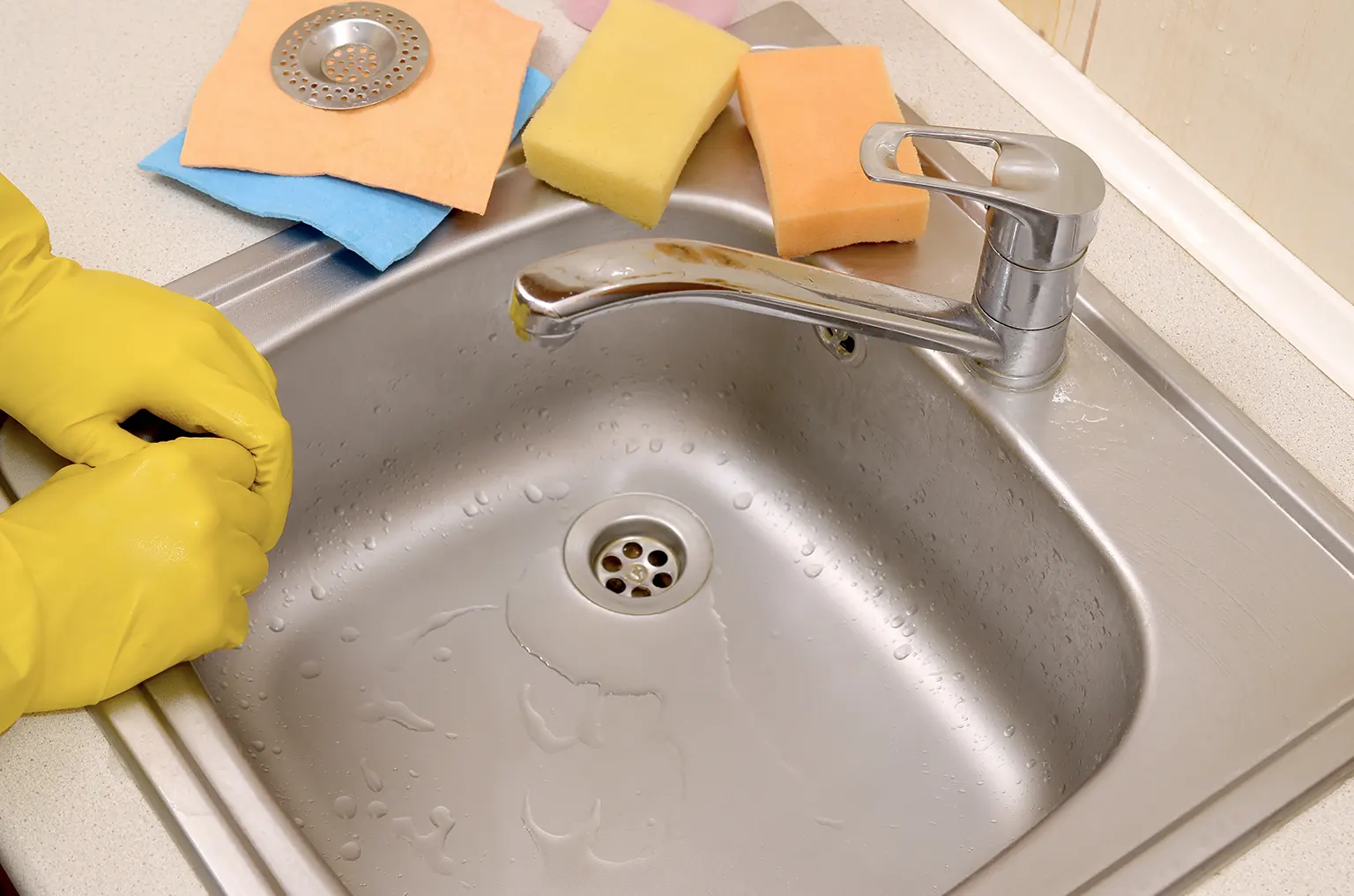
Safer Alternatives to Chemical Drain Cleaners
Thankfully, you don’t have to rely on harsh chemicals to clear a clog. There are plenty of safer, more eco-friendly options out there:
- Plungers and Drain Snakes: These are the MVPs of drain cleaning. A good plunger can handle most clogs, and a drain snake is perfect for fishing out hair or other debris.
- DIY Solutions: A mix of baking soda and vinegar followed by a pot of boiling water can work wonders. It’s cheap, safe, and surprisingly effective.
- Enzymatic Cleaners: These natural cleaners take longer to work but are much safer for your pipes and the environment.
- Call a Plumber: For tough clogs, a professional can get the job done without the risks associated with chemical cleaners.
Pro Tip: Keep a drain snake or auger handy. They’re easy to use and save you from a lot of headaches.
Tips for Preventing Clogged Drains
The best way to deal with clogged drains is to stop them from happening in the first place. Prevention is not only easier but also way cheaper. Here are some practical tips:
- Flush Regularly: Pour hot water down your drains every week to prevent buildup. A monthly flush with baking soda and vinegar can also help keep things moving.
- Watch What Goes Down the Drain: Avoid pouring grease, coffee grounds, and food scraps down the sink. Use a garbage disposal bin for these instead.
- Use Drain Screens: These are lifesavers for catching hair, soap bits, and food debris before they cause a problem.
- Teach Good Habits: Make sure everyone in your household knows what’s okay (and not okay) to put down the drain.
Smarter Choices for Drain Maintenance
Chemical drain cleaners might seem like the easiest solution for a clogged drain, but they come with plenty of risks—to your health, your plumbing, and the environment. While they can work in a pinch, there are safer and more effective options that won’t cause long-term damage.
Next time you’re faced with a slow drain, try a DIY fix or invest in some basic tools like a plunger or drain snake. And if all else fails, don’t hesitate to call in a professional. Remember, prevention is key. With a little effort, you can keep your drains clear and avoid the hassle of clogs altogether.
If you're dealing with a stubborn clog and want to avoid the risks of chemical drain cleaners, contact us today to schedule an expert plumbing service!


